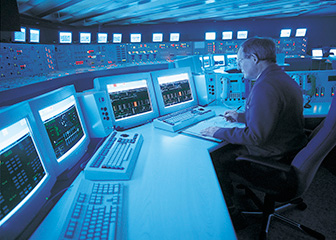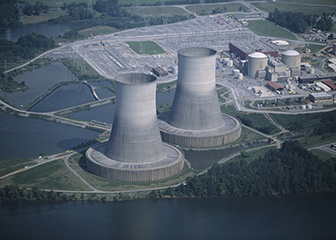
Nuclear engineers write operational instructions to be used in nuclear plant operations or in handling and disposing of nuclear waste.
Nuclear engineers must have a bachelor’s degree in nuclear engineering. Employers also value experience, so cooperative-education engineering programs at universities are also valuable.
Education
Entry-level nuclear engineering jobs require a bachelor's degree. Students interested in studying nuclear engineering should take high school courses in mathematics, such as algebra, trigonometry, and calculus; and science, such as biology, chemistry, and physics.
Bachelor's degree programs typically are 4-year programs and encompass classroom, laboratory, and field studies in areas that include mathematics and engineering principles. Most colleges and universities offer cooperative-education programs in which students gain experience while completing their education.
Some universities offer 5-year programs leading to both a bachelor’s and a master’s degree. A graduate degree allows an engineer to work as an instructor at a university or engage in research and development. Some 5-year or even 6-year cooperative-education plans combine classroom study with work, permitting students to gain experience and to finance part of their education.
Programs in nuclear engineering are accredited by ABET (formerly the Accreditation Board for Engineering and Technology).
Important Qualities
Analytical-thinking skills. Nuclear engineers must be able to identify design elements to help build facilities and equipment that produce material needed by various industries.
Detail oriented. Nuclear engineers supervise the operation of nuclear facilities. They must pay close attentions to what is happening at all times, and ensure that operations comply with all regulations and laws pertaining to the safety of workers and the environment.
Logical-thinking skills. Nuclear engineers design complex systems. Therefore, they must be able to order information logically and clearly so that others can follow their written information and instructions.
Math skills. Nuclear engineers use the principals of calculus, trigonometry, and other advanced topics in mathematics for analysis, design, and troubleshooting in their work.
Teamwork. Nuclear engineers work with mechanical engineers and electrical engineers and therefore must be able to incorporate systems designed by these other engineers into their own designs.
Additionally, because of the potential hazard posed by nuclear materials and by accidents at facilities, nuclear engineers must be able to anticipate problems before they occur and suggest remedies.
Licenses
Nuclear engineers who work for nuclear powerplants are not required to be licensed. However, they are eligible to seek licensure as professional engineers. Those who become licensed carry the designation of professional engineer (PE). Licensure is recommended and generally requires the following:
- A degree from an engineering program accredited by ABET
- A passing score on the Fundamentals of Engineering (FE) exam
- Relevant work experience
- A passing score on the Professional Engineering (PE) exam
The initial Fundamentals of Engineering (FE) exam can be taken right after graduating. Engineers who pass this exam commonly are called engineers in training (EITs) or engineer interns (EIs). After getting work experience, EITs can take the second exam, called the Principles and Practice of Engineering exam.
Several states require engineers to take continuing education to keep their license. Most states recognize licenses from other states, as long as that the other state’s licensing requirements meet or exceed their own licensing requirements.
Advancement
Beginning engineering graduates usually work under the supervision of experienced engineers. In large companies, new engineers may receive formal training in classrooms or seminars. As beginning engineers gain knowledge and experience, they move to more difficult projects with greater independence to develop designs, solve problems, and make decisions.
Eventually, nuclear engineers may advance to become technical specialists or to supervise a team of engineers and technicians. Some may become engineering managers or move into managerial positions or sales work. For more information, see the profile on architectural and engineering managers.
Nuclear engineers have the background needed to become medical physicists, who work in the relatively new field of nuclear medicine. A master’s degree is necessary for a worker to enter this field.










